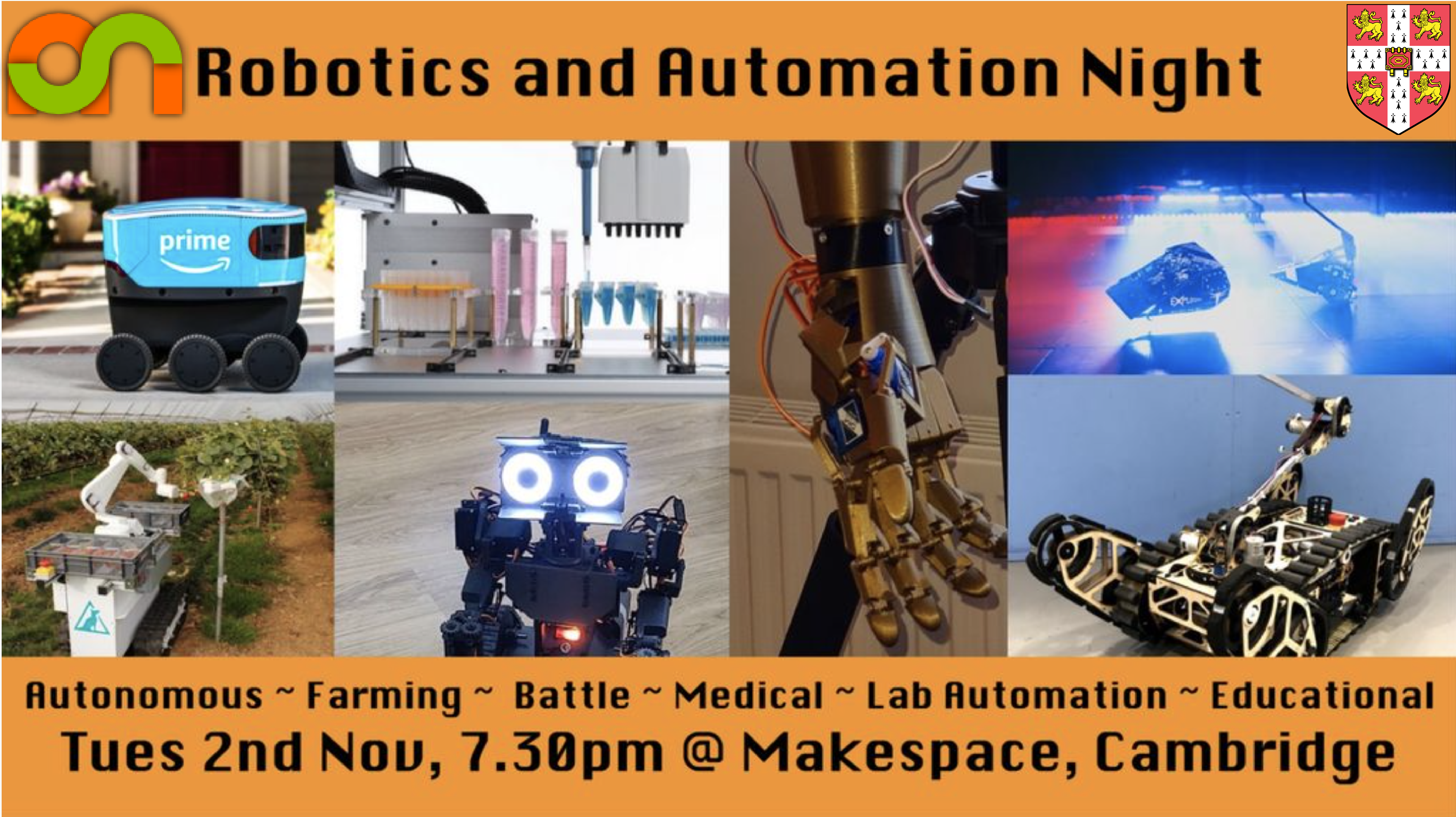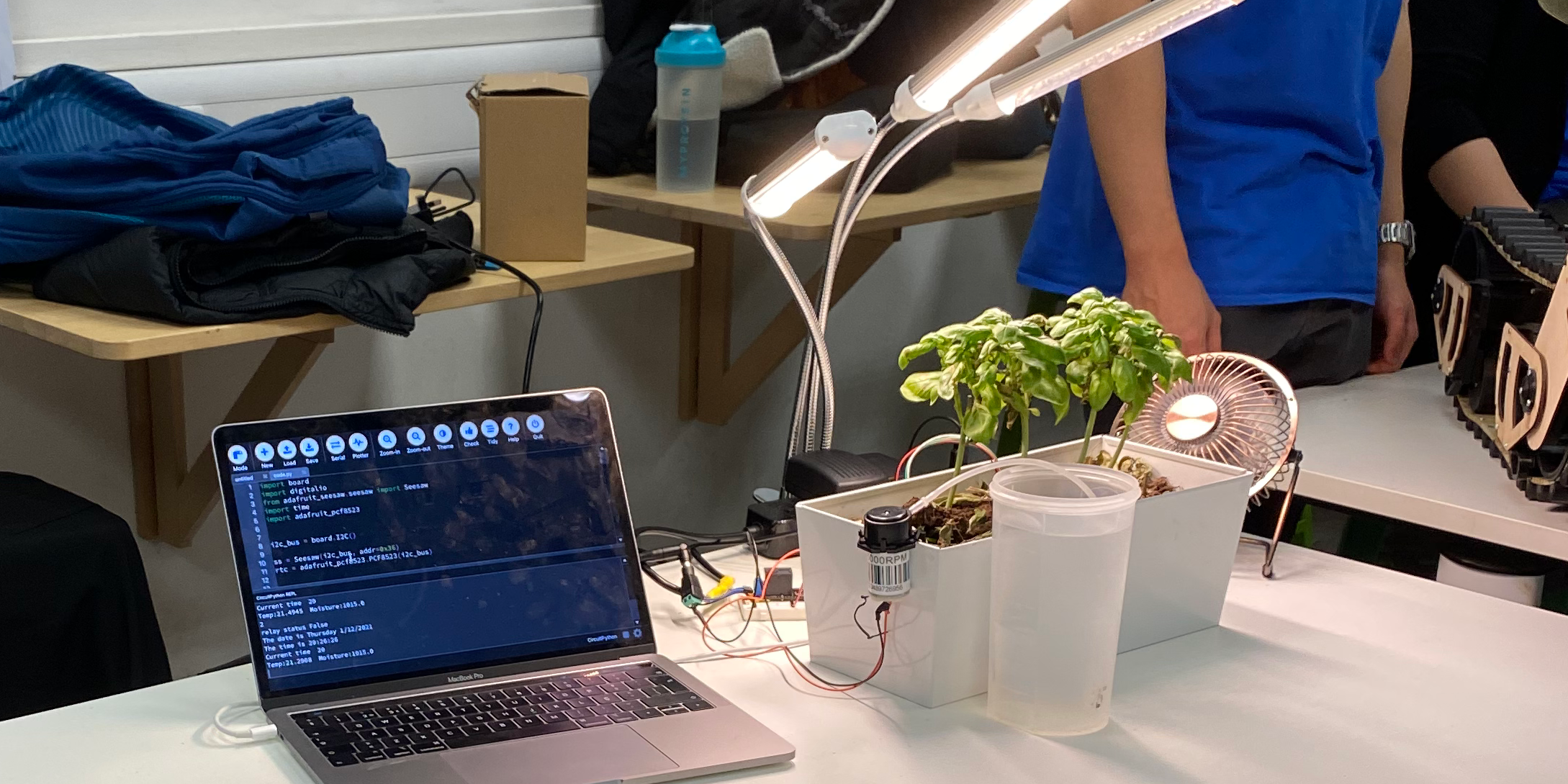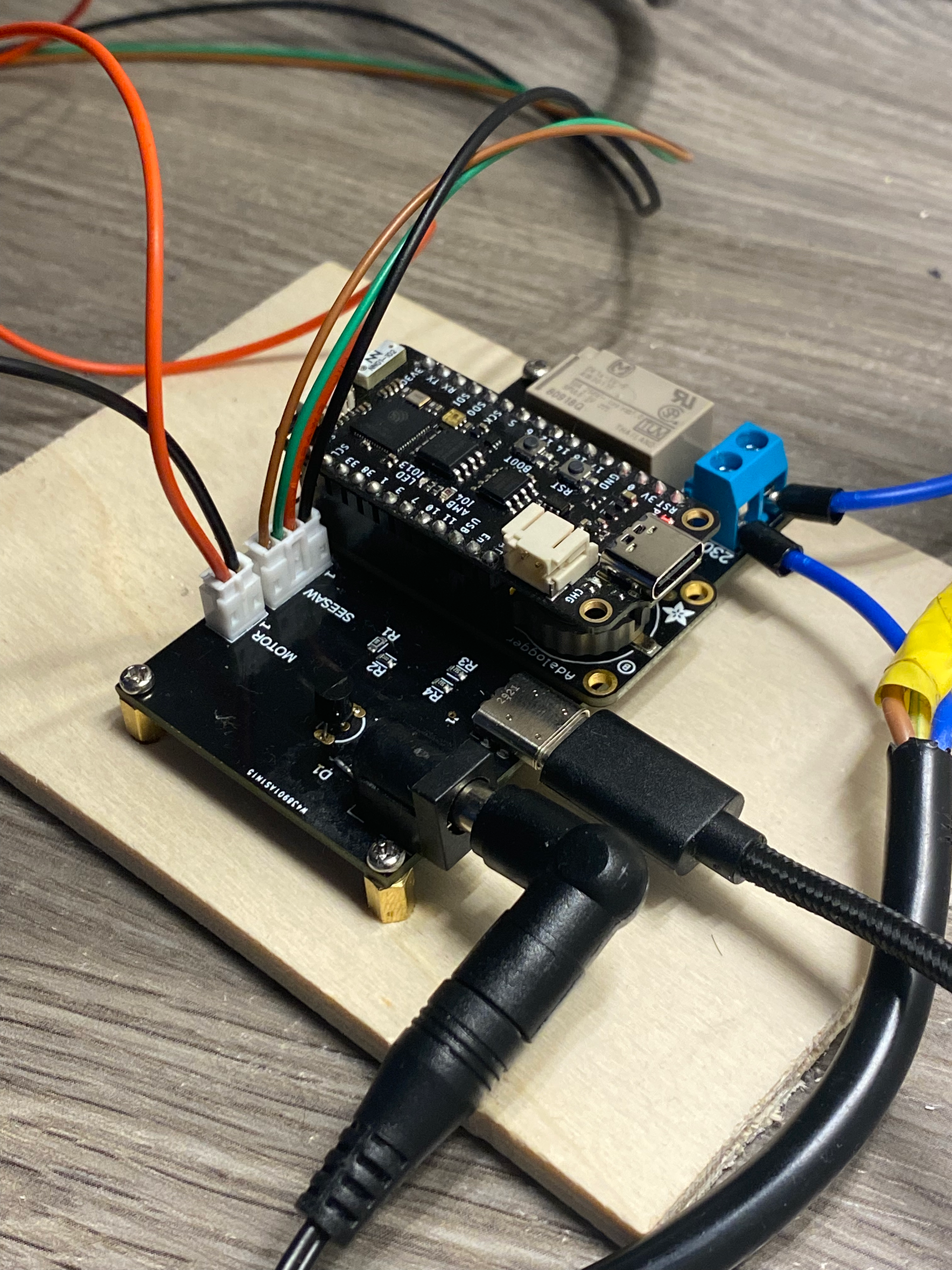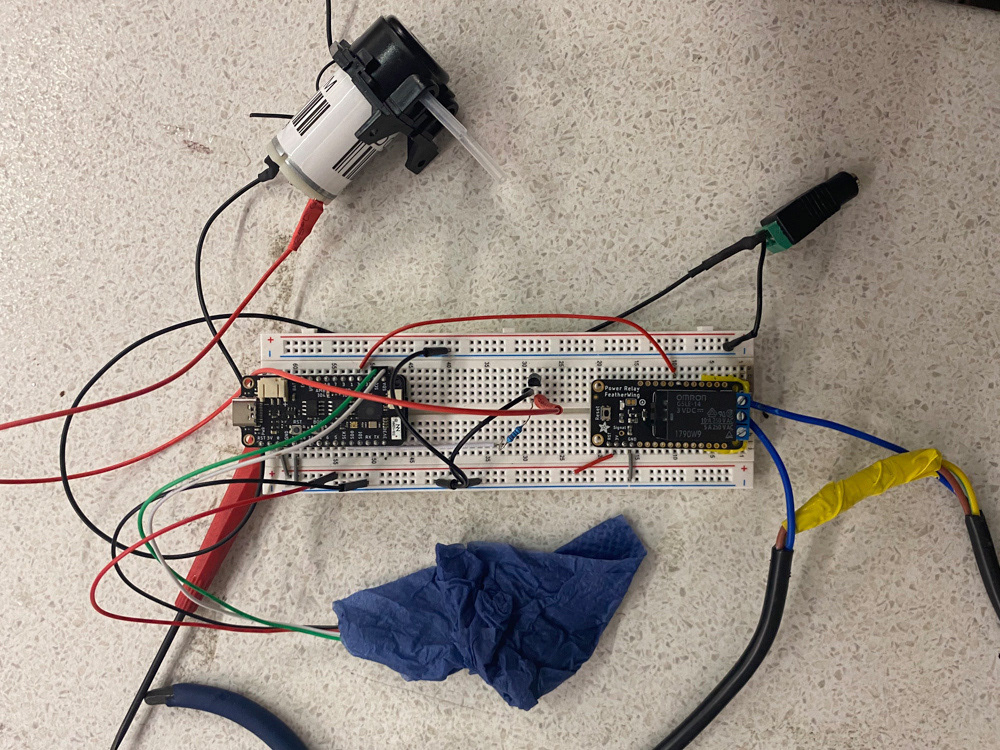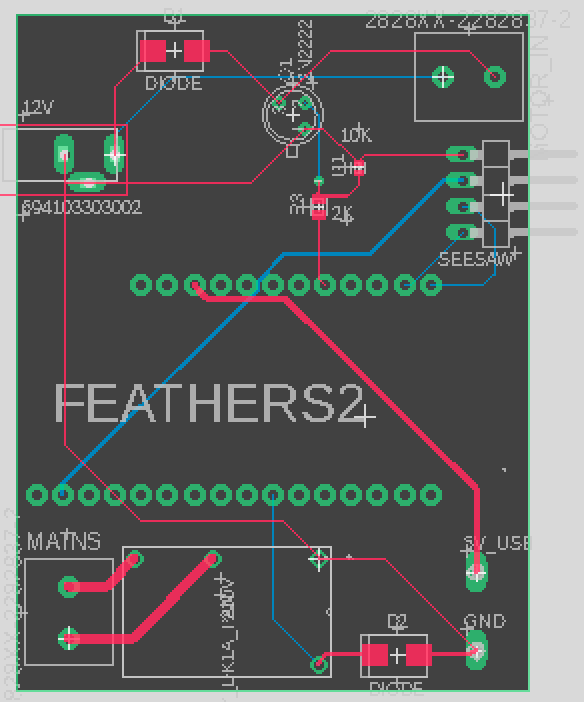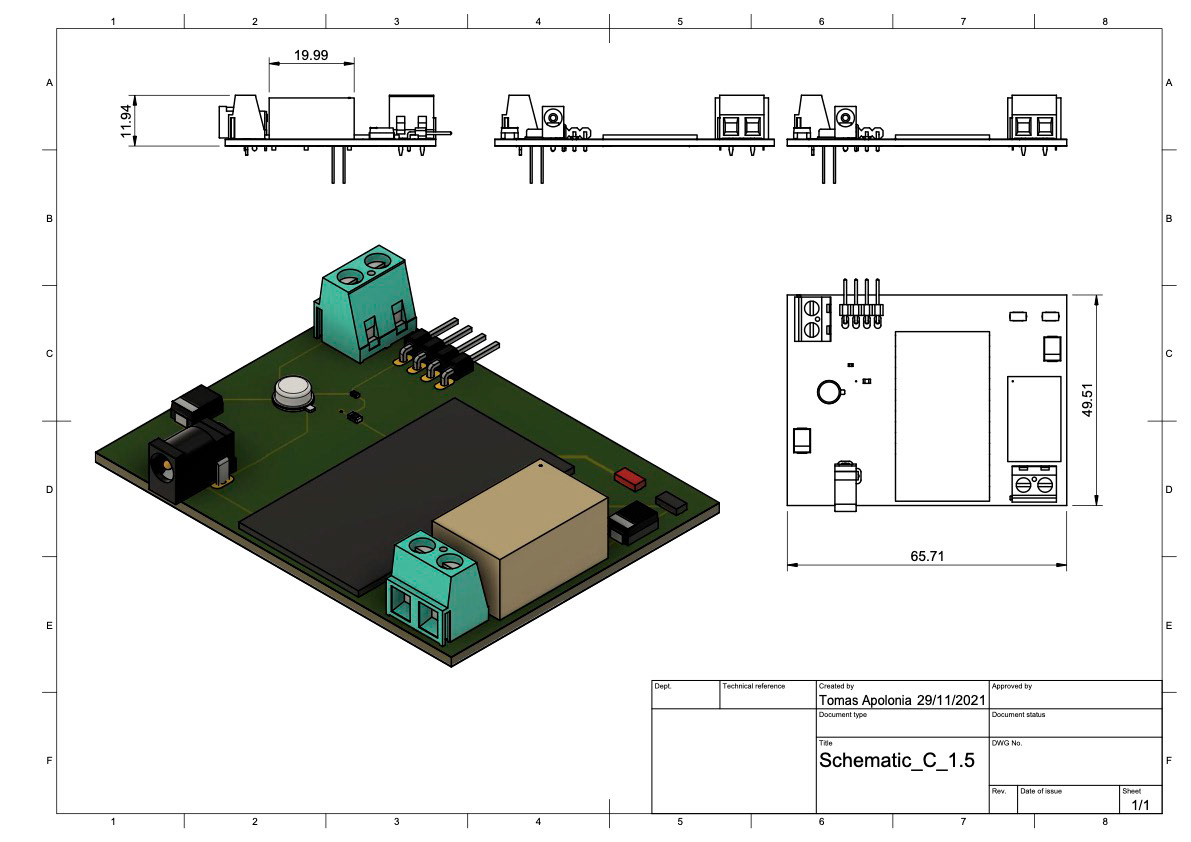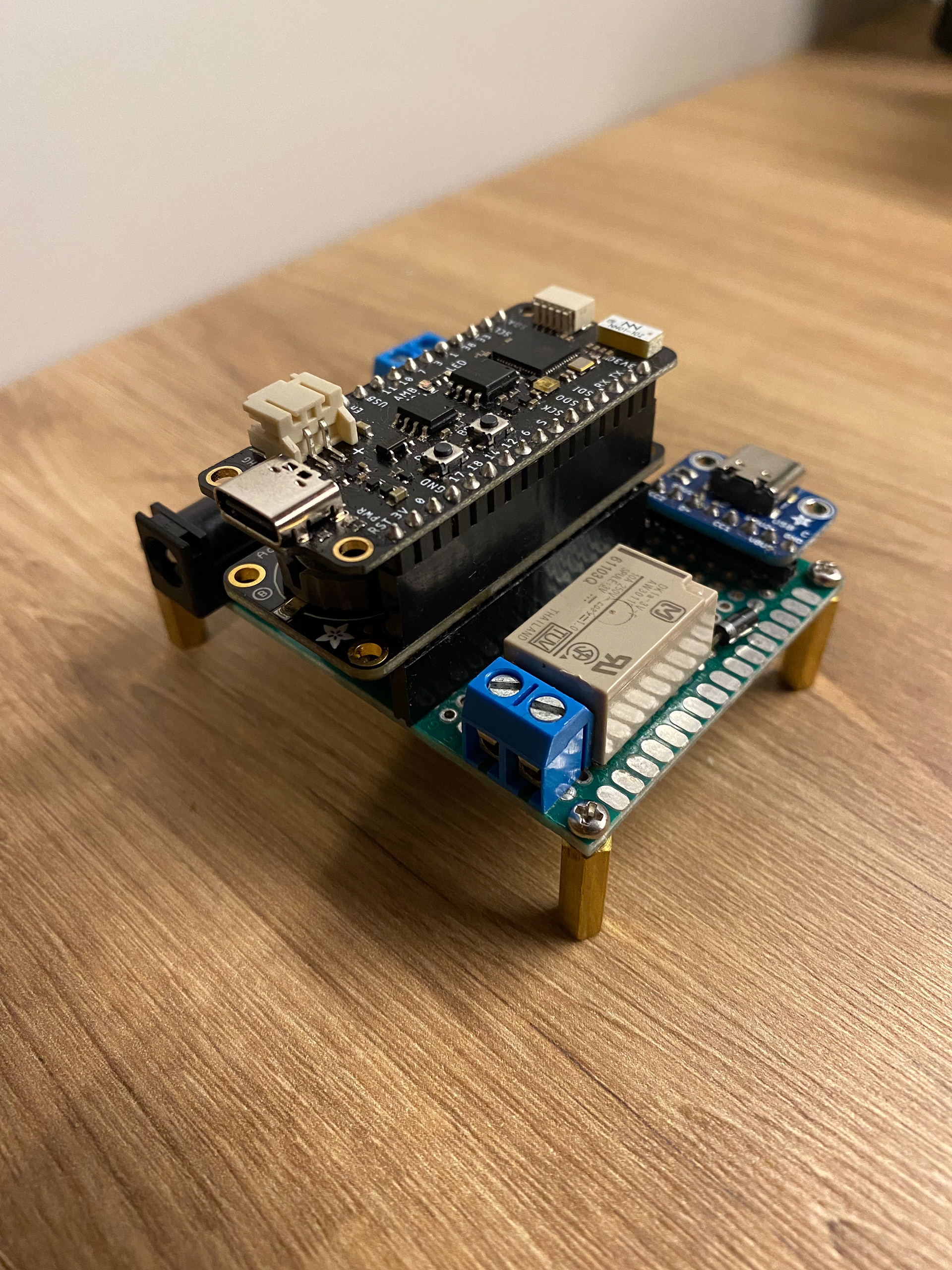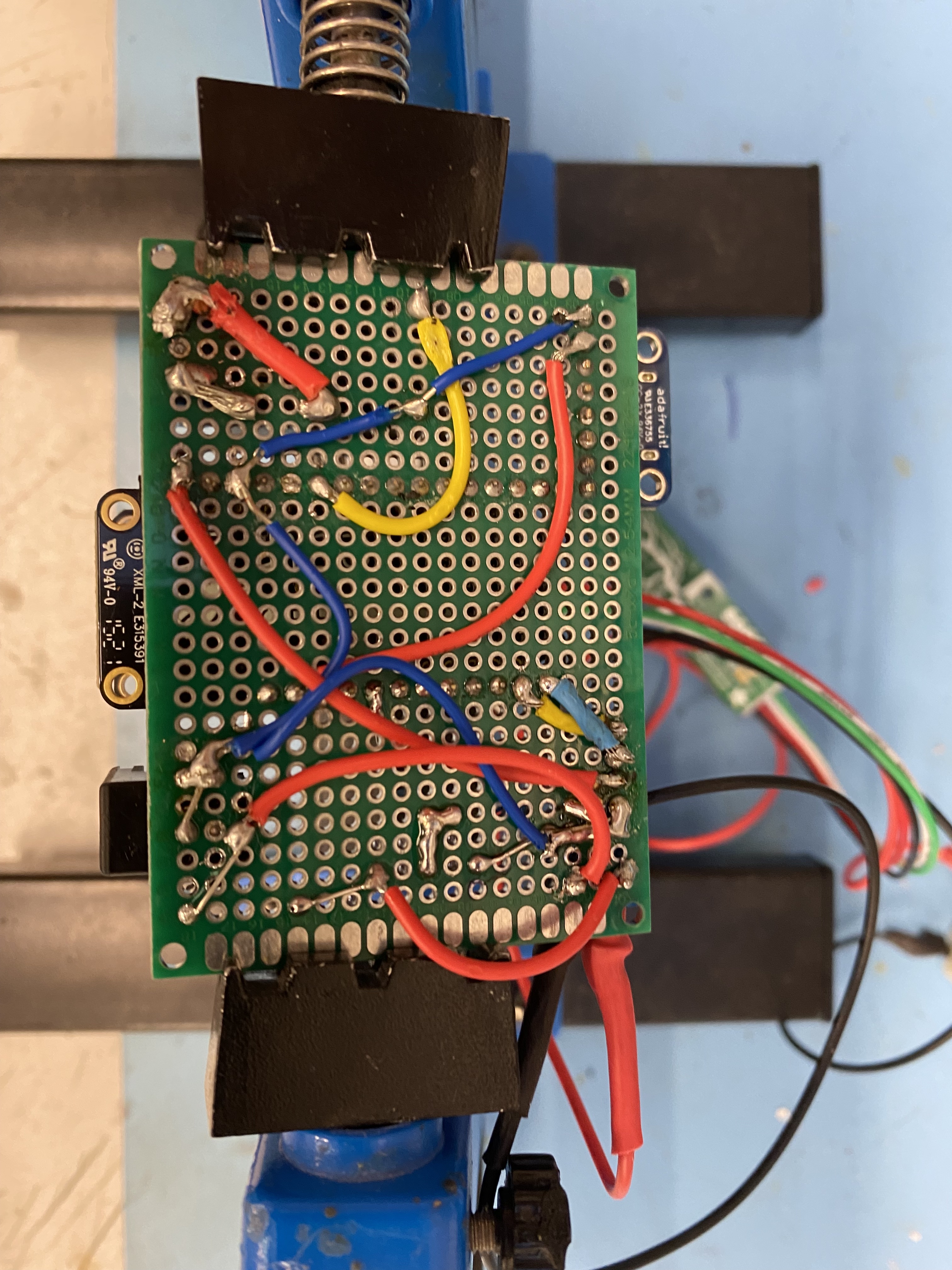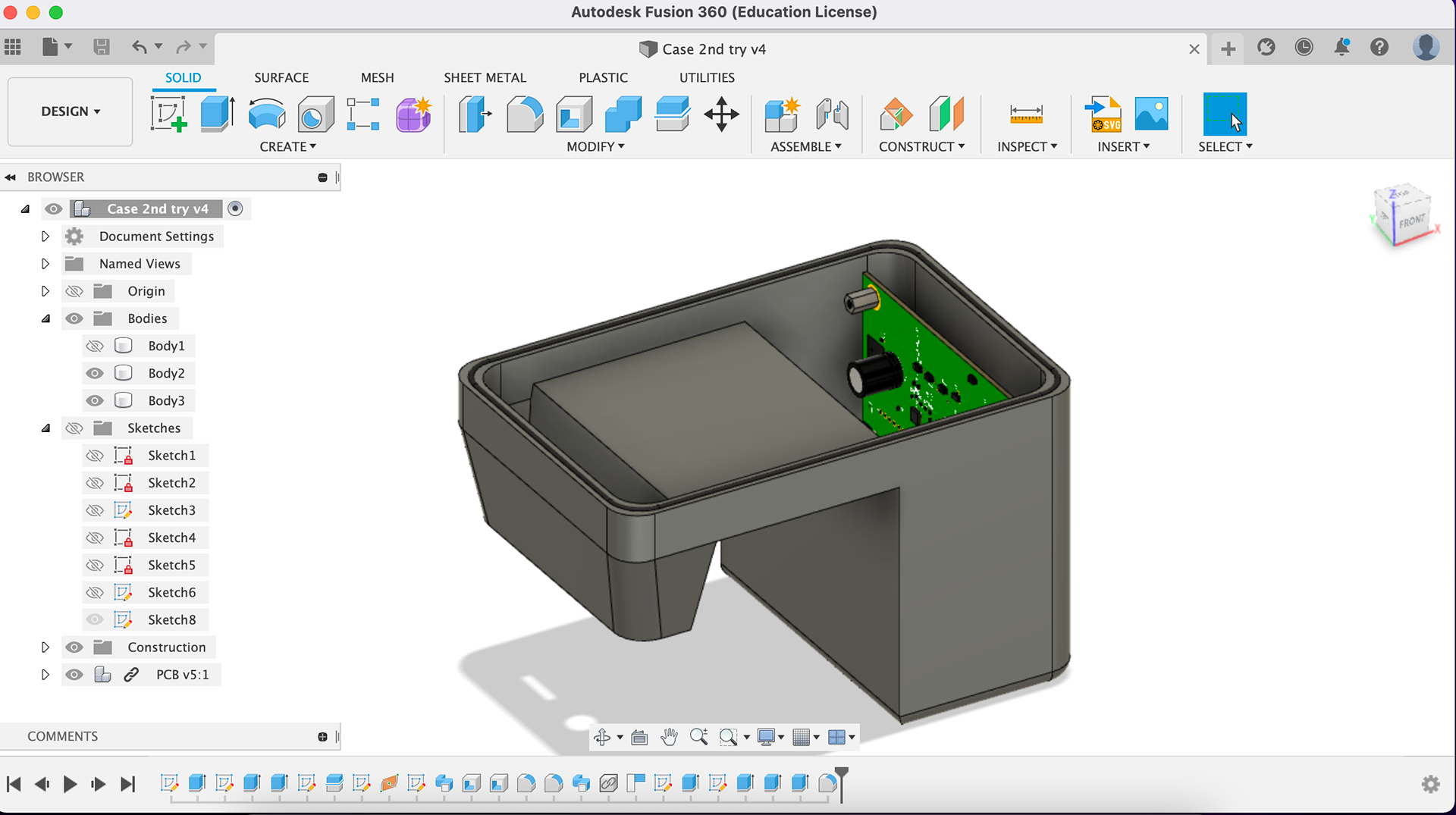SmartBasil
Smart plant pot with auto watering and Real time clock for light control.
Moving to England required me to switch from my usual mediteranian diet. To combate this drastic switch I made a smart plant pot with artificial lights to keep providing me with basil all year round, no matter the British weather.
Problem:
My basil plants die in the winter, and have minimal growth
Solution proposed:
- Smart plant pot with auto watering feature
- Artificial lighting to supplement UK’s fantastic sunlight
Final Prototype
- Capacitive moisture sensor
- 1 Peristaltic pump connected to a 5L bottle
- RTC to accurately know the hour of the day to track lighting cycles
- 230v relay up to 10A to control huge range of lighting sources.
Methodology
flowchart LR
id1((Idea)) --> id2(Breadboard design) --> id3(ECAD) --> id4(Prototype Board) --> id5(Final PCB)
id4(Prototype Board) --> id6(Enclosure Design)
Breadboard design
Prototype Board
Final PCB
- Added in flyback protection for both 230v relay and 12v npn transistor.
- 5v 2A usb C Power delivery
- JST connectors for both motor and soil humidity sensor
- Latching relay to reduce power consuption, meaning only need to pulse the relay once to toggle 230v AC
Enclosure future idea?
Conclusion and learnings
- First time I got a pcb manufactured.
- Triple check your component sizes all match up, don’t accept manufactures alternative components if they dont fit!
- Certain products don’t need to go to pcb manufacturing. In this case I did not add any functionality by moving to a PCB. I did improve savety by ensuring the traces on the 230v can withstand 10A, much harder to do on solderd joints.
Robotics and Automation Event
During my time in Cambridge, I was invited to an informal evening dedicated to those working on or interested in robotics and automation around the Cambridge area by Makespace. The purpose was to showcase the current progress in my SmartBasil plant.
There was a diverse range of designs on display, ranging from projects by companies to personal endeavors. Examples included farming robotics and automation, autonomous vehicles, medical robots, educational robots, and even battle bots.
This event provided an opportunity to interact with a wide spectrum of talented individuals, from PhD computer science students to seasoned electronics professionals with more years of experience than I’ve been alive. The diverse expertise present allowed me to ask numerous questions and gather insights for the next phase of my project, which involved the development of a full-fledged professional PCB. 